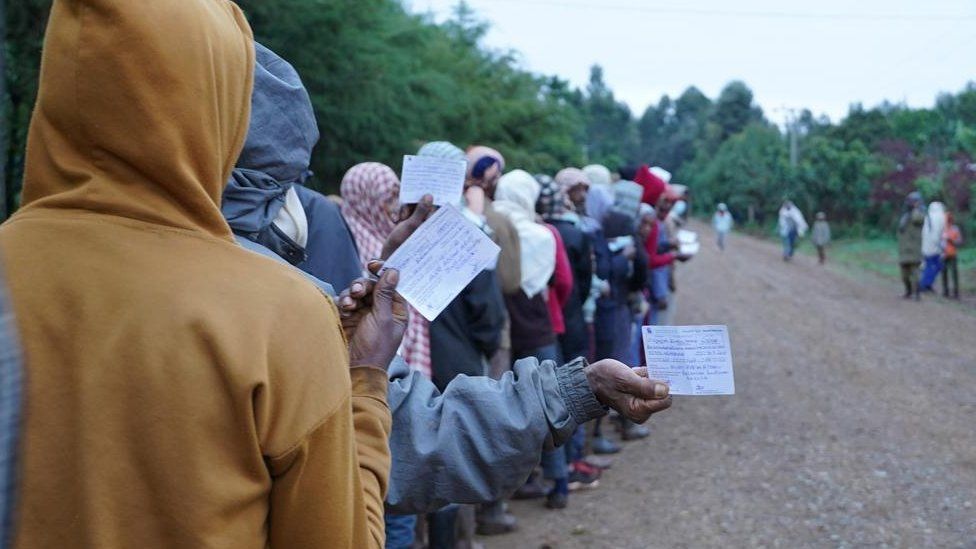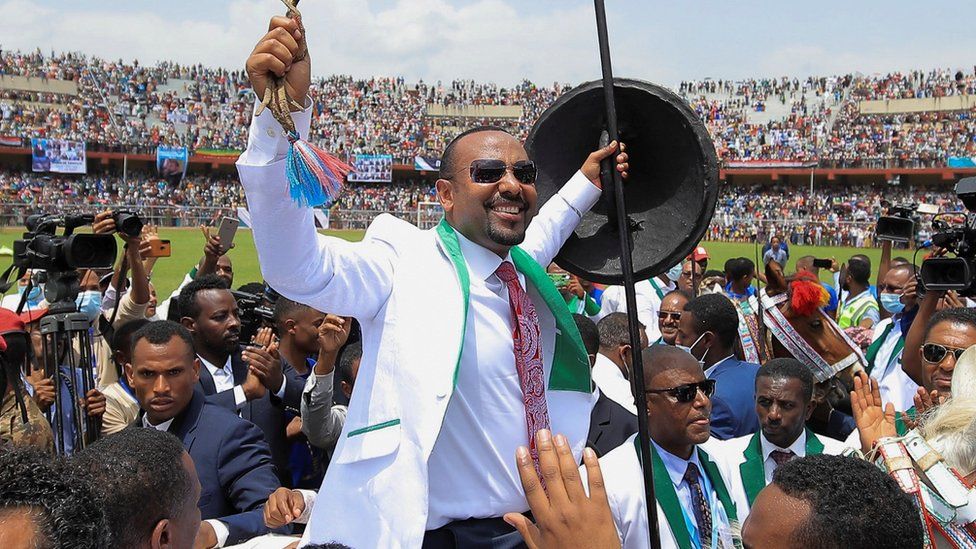Ethiopians are voting in key elections amid rising tensions and a bloody conflict in the northern Tigray region.
This pandemic-delayed poll is Prime Minister Abiy Ahmed’s first electoral test since coming to power in 2018.
But the vote has been postponed in Tigray, where the army has been fighting a local force since November.
Insecurity and logistical problems have hit other parts of the country as well, so overall there will be no voting in about a fifth of constituencies.
The Tigray conflict has sparked a humanitarian crisis, with 350,000 people living in famine conditions, according to a recent assessment.
Voting is taking place in the capital, Addis Ababa, where BBC reporters have seen long queues of voters. It is one area where Mr Abiy is expected to face a stiff challenge and where the opposition has succeeded in the past.

“Each vote has a value for a better future. So, everyone who has the voter’s card must use this opportunity because there is no room for regrets later,” Abebe Sileshi, another voter in Addis Ababa, said.
The general election, the first since 2015, was originally slated for August 2020 but was rescheduled because of coronavirus.
Under the initial election timetable, preliminary results from constituencies are to be announced within five days of the election, while final certified results are to be announced within 23 days.
Why are these elections so important?
Mr Abiy came to power in 2018 as the nominee of the then-ruling coalition but he has never faced the electorate.
He rose to the top job on the back of protests against the government dominated by the Tigray People’s Liberation Front (TPLF) and embarked on shaking up the country.
 IMAGE COPYRIGHTREUTERS
IMAGE COPYRIGHTREUTERSMr Abiy will keep his post if the party wins a majority of the 547 seats in the national assembly. He says the polls will be “the nation’s first attempt at free and fair elections”.
His reformist zeal saw him win the 2019 Nobel Peace Prize, but just a year later, he waged a military operation in his own country. He deployed troops to Tigray to oust the TPLF as the region’s ruling party after it seized military bases in what Mr Abiy saw as a bid to overthrow him.
It resulted in a conflict that has killed thousands of people and has led to mass hunger and reports of famine in the region.
What does the opposition say?
More than 40 parties have fielded candidates, the National Election Board of Ethiopia says, but most of them are regional parties.
Opposition parties have complained that a government crackdown against their officials has disrupted their plans to prepare for the polls.
 IMAGE COPYRIGHT AFP
IMAGE COPYRIGHT AFPIn some pivotal regions, such as Oromia, opposition parties are boycotting the election.
The Oromo Liberation Front pulled out in March, alleging government intimidation.
The TPLF has been designated a terrorist organization. Some of its leaders have been arrested, while others are on the run or are continuing to wage a guerrilla war in Tigray.
Source: BBC




